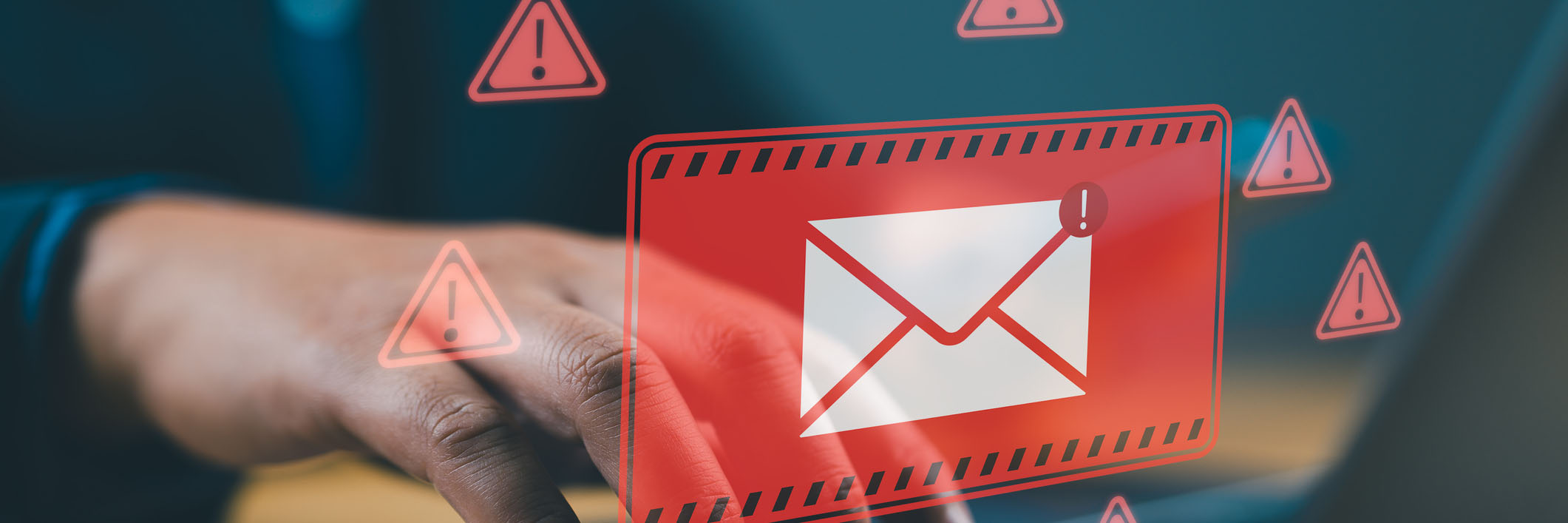If you get an email, text, letter or call that claims to be from the IRS — or if you see social media posts about how to get a big refund — it might be a scam or bad tax advice.
What to know
An email, call or message could be a scam if it:
- Is unexpected
- Rushes or threatens you
- Offers refunds, credits or deductions
- Pressures for personal or financial information
- Tells you to pay now "or else"
Report a scam
If you were scammed, had your information stolen or suspect fraud, there are actions you can take.
Report fraud, a scam or identity theft
Take steps if you were scammed
Current tax scams
Protect yourself. Be aware of current scams:
Fake charities take advantage of the public’s generosity, especially during a crisis or disaster. You can’t deduct donations to fake charities.
Before you donate, verify the charity is real. Search for a tax-exempt organization.
IRS impersonators call disaster victims, offering to “help” file casualty loss claims. We don’t call without notifying you by mail.
Get help on the IRS disaster assistance line at 866-562-5227. Our representatives can answer questions about disaster assistance and relief.
If Box 1 of Form 1099-G, Certain Government Payments shows unemployment compensation you didn’t get, you may be a victim of identity theft. Criminals can use your information to file fake unemployment claims, leaving you with taxable income to report.
Scams and bad social media advice promise big refunds by encouraging you to falsify your Form W-2, Wage and Tax Statement.
They may encourage you to falsely claim credits:
- Fuel Tax Credit (Form 4136)
- Sick and Family Leave Credit (Form 7202)
- Household employment taxes (Schedule H)
Scammers charge large, upfront fees or a fee based on your refund amount. People who try this scam face penalties and risk criminal prosecution.
Criminals email businesses and payroll companies to steal Form W-2 data. They use names and SSNs to file fraudulent returns for refunds or to commit other crimes.
Form W8-BEN, Certificate of Foreign Status of Beneficial Owner for United States Tax Withholding is a legitimate U.S. tax exemption document. You can only submit Form W-8BEN to a withholding agent.
Scammers use fraudulent Forms W8-BEN to get personal information such as your mother’s maiden name, passport number, PINs and passcodes.
Scam messages may say:
- Anti-money laundering regulations require a review of your client information. Please complete the attached form.
- You are exempt from tax reporting and withholdings on income including interest paid to you. To protect your exemption from tax, please complete the attached form.
Scammers pose as the IRS and request gift cards as payment for a fake tax bill. We never ask for or accept gift cards as payment.
Scammers offer services to help you create an IRS account. Their aim is to steal your personal information.
You can create your own IRS account.
A social media scheme encourages people to include false income and withholding information on these forms:
- Forms W-2 and W-2G
- Forms 1099-R, 1099-NEC, 1099-DIV, 1099-OID and 1099-B
- Alaskan Dividend Fund, Schedule K-1 with Withholding Reported, and Unspecified Source of Withholding Credit Claimed
The scheme suggests people make up large income and withholding amounts and fictional employers, then file the tax return electronically. The aim is to get a big refund due to the large amount of fraudulent withholding.
Scammers call senior citizens with claims of tax owed or refunds. They may:
- Impersonate the IRS, Social Security Administration or Medicare
- Claim problems, refunds or prizes
- Pressure for immediate action
- Ask for payment by wire transfer, gift cards or cryptocurrency
Hang up if you get a suspicious call.
Tax advice
Bad tax advice on social media can mislead you about credit or refund eligibility. Influencers may convince you to lie on tax forms or incorrectly suggest the IRS is keeping a tax credit secret from you. Social media posts may connect you with scammers.
IRS warning against taking social media tax advice
IRS social media
We never send direct messages by social media. We use social media to share updates on tax changes, scam alerts and IRS services.
Scam promoters and social media accounts market credits as a way to get a big refund. Dishonest or uninformed tax preparers misrepresent rules for claiming credits. These can mislead you to file an incorrect return.
If you get an IRS letter about a credit or refund claim
IRS warnings on tax credit scams:
Promoters on radio and TV claim they can settle your tax debt for cheap with an offer in compromise. In reality, you pay the promoter for what you can do yourself with the IRS.
You can settle a tax debt directly with us if you’re eligible for an offer in compromise (OIC).
Scams targeting tax professionals
Scams such as new client emails or EFIN emails target tax professionals to get client data.
Report a data breach or targeted phishing email.
Dishonest or “ghost” tax professionals
Don’t trust a tax professional who:
- Doesn’t sign the return
- Doesn’t have a Preparer Tax Identification Number (PTIN)
- Falsifies tax information
- Puts your refund in their bank account
- Requires you to pay in cash or doesn’t provide a receipt
Fake IRS mail is designed to mislead you about an unclaimed refund and get you to provide your personal and financial information.
How to avoid tax scams

 )
or https:// means you've safely connected to the .gov website. Share sensitive information only on official, secure websites.
)
or https:// means you've safely connected to the .gov website. Share sensitive information only on official, secure websites.


